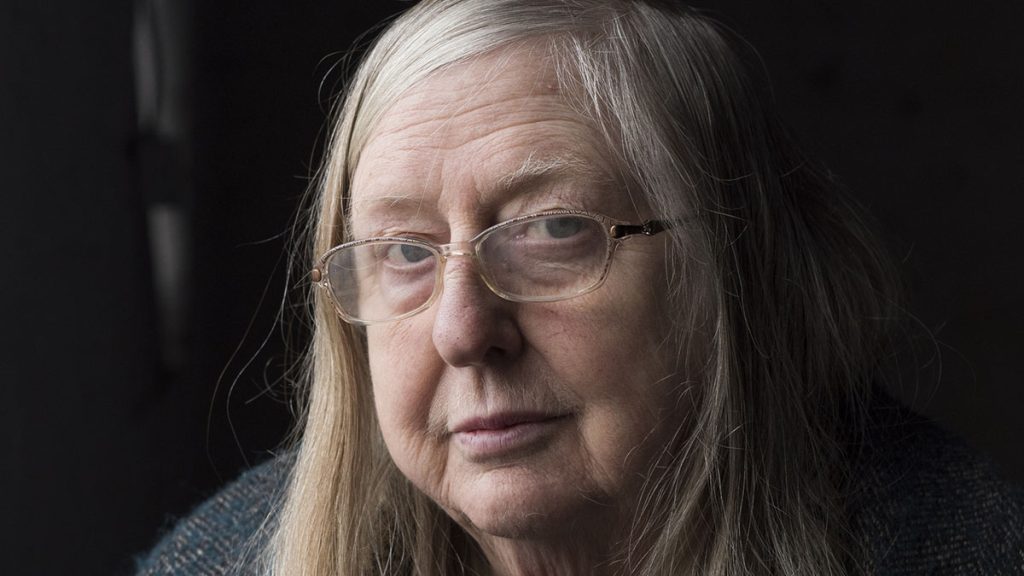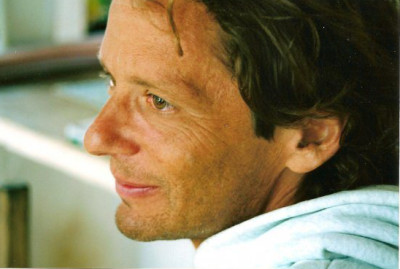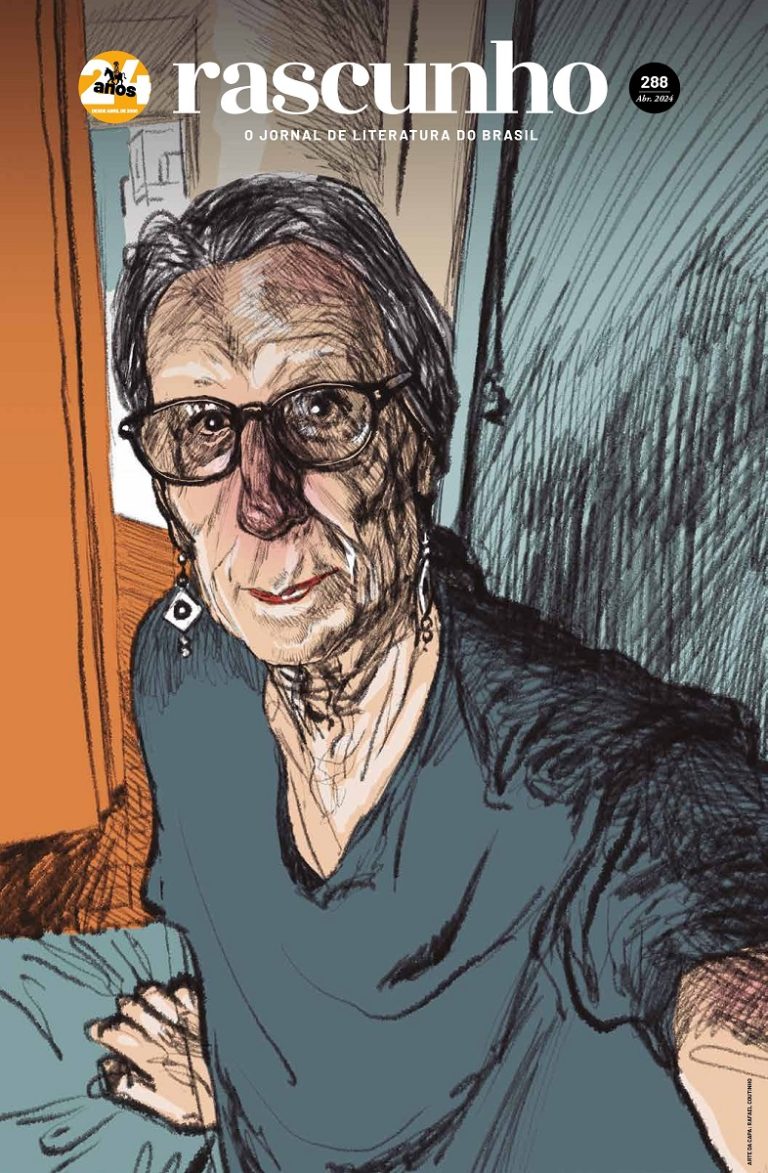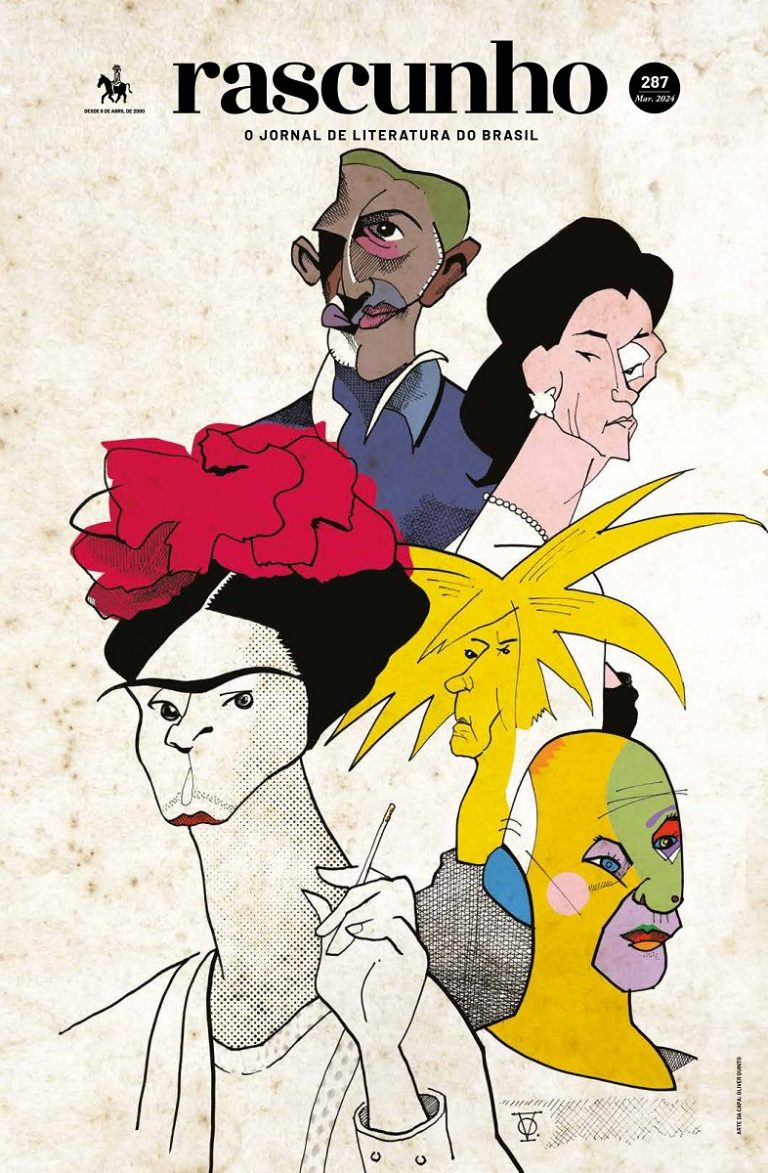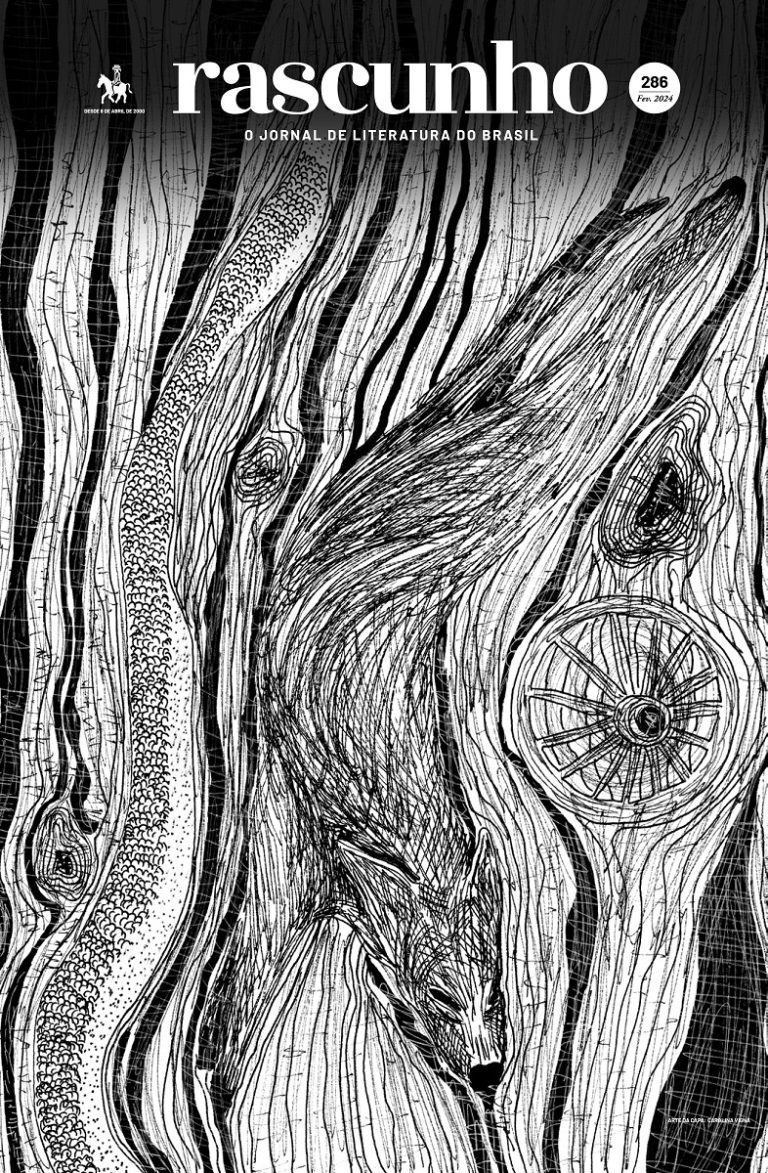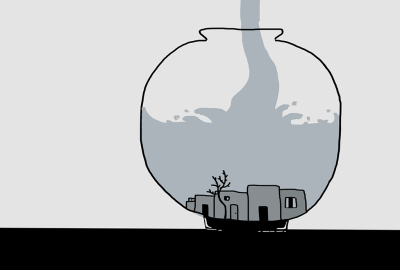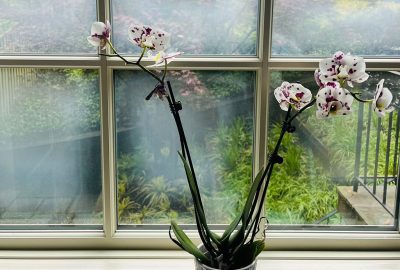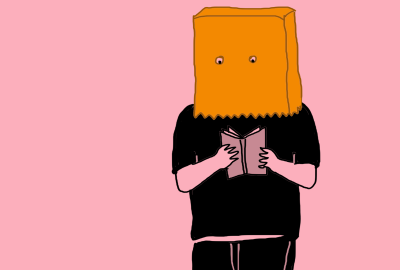Tradução e seleção: André Caramuru Aubert
The absent girl
The absent girl is
Conspicuous by her silence
Sitting at the courtroom window
Her cheek against the glass.
They pass her without a sound
And when they look for her face
Can only see the clock behind her skull;
Grey hair blinds her eyes
And night presses on the window-panes,
She can feel the glass cold
But with no time for pain
Searches for a memory lost with muscle and blood—
She misses her ligaments and the marrow of her bones.
The clock chatters; with no beating heart
Lung or breast how can she tell the time?
Her skin is shadowed
Where once the early sunlight blazed.
A garota ausente
A garota ausente é
Notável por seu silêncio
Sentada junto à janela do tribunal
Sua bochecha encostada no vidro.
Passam por ela em silêncio
E quando procuram por sua face
Veem apenas o relógio por trás do crânio;
Cabelo cinzento cegam os olhos dela
E a noite aperta as janelas,
Ela sente o frio da vidraça
Mas, sem tempo para a dor
Busca por lembranças apagadas por músculos e sangue —
Sente falta dos ligamentos e do tutano de seus ossos.
O relógio avança; mas, sem um coração a bater, sem
Pulmão ou peito, como poderia ela saber as horas?
E sua pele, sombreada
Onde antes ardia o sol da manhã.
…
Reflection
You are not the sun or the moon
But the wolf that will swallow down both sun and moon.
They dance around but they must go down
You will devour them all.
The houses, flowers, the salt and ships
Streams that flow down mountains, flames that burn up trees.
You are the twining gulf Charybdis
Whose currents yield return to none.
Reflexão
Você não é o sol nem a lua
E sim o lobo que vai engolir tanto o sol quanto a lua.
Eles dançam por aí mas terão que descer
Você irá a todos devorar.
As casas, as flores, o sal e os barcos
Córregos descendo das montanhas, chamas que incineram árvores.
Você é o golfo enroscado de Cáribdis,
De cujas correntezas ninguém retorna.
…
Wash
Wash man out of the earth; shear off
The human shell.
Twenty feet down there’s close cold earth
So clean.
Wash the man out of the woman:
The strange sweat from her skin, the ashes from her hair.
Stretch her to dry in the sun
The blue marks on her breast will fade.
Woman and world no yet
Clean as the cat
Leaping to the windowsill with a fish in her teeth;
Her flat curious eyes reflect the squalid room,
She begins to wash the water from the fish.
Lavar
Lavar o homem pra fora da terra; tosquiar
A couraça humana.
Vinte pés abaixo há terra fria perto
Tão limpa.
Lavar o homem pra fora da mulher:
O estranho suor da pele dela, as cinzas de seu cabelo.
Estique-a para que seque ao sol
Desvanecerão as marcas azuis em seus peitos.
Mulher e mundo, não ainda
Limpos como a gata
Que pula até o parapeito com um peixe nos dentes;
Os olhos curiosos refletindo o aposento pobre,
Ela começa a lavar a água que sai do peixe.
…
Séamus Murphy, died October 2nd 1975
Walking in the graveyard, a maze
Of angels and families
The path coils like a shaving of wood
We stop to read the names.
In time they all come around
Again, the spearbearer, the spongebearer
Ladder and pillar
Scooped from shallow beds.
Carrying black clothes
Whiskey and ham for the wake
The city revolves
White peaks of churches clockwise lifting and falling.
The hill below the barracks
The sprouting sandstone walls go past
And as always you are facing the past
Finding below the old clockface
The long rambles of the spider
In the narrow bed of a saint
The names inscribed travelling
Into a winter of stone.
Séamus Murphy, falecido em 2 de outubro de 1975
Caminhando pelo cemitério, uma profusão
De anjos e famílias
O caminho se retorce como madeira lascada
Então paramos para ler os nomes.
Aos poucos todos se aproximam
Novamente, o lanceiro, o carregador da santa esponja
Escada e pilastra
Escavadas de leitos rasos.
Levando roupas pretas
Uísque e presunto para o velório
A cidade gira
Cumes brancos das igrejas sobem e descem em sentido horário.
A colina abaixo do quartel
As paredes de arenito brotam e passam
E como sempre, você encarando o passado
Encontrando, debaixo do antigo relógio
Os longos passeios da aranha
Na cama estreita de um santo
Os nomes inscritos, a viajar
Para um inverno de pedra.
…
Studying the language
On Sundays I watch the hermits coming out of their holes
Into the light. Their cliff is as full as a hive.
They crowd together on warm shoulders of rock
Where the sun has been shining, their joints crackle.
They begin to talk after a while.
I listen to their accents, they are not all
From this island, not all old,
Not even, I think, all masculine.
They are so wise, they do not pretend to see me.
They drink from the scattered pools of melted snow:
I walk right by them and drink when they have done.
I can see the marks of chains around their feet.
I call this my work, these decades and stations—
Because, without these, I would be a stranger here.
Estudando a língua
Aos domingos eu observo os eremitas saindo das tocas
Para a luz. Seu penhasco é tão movimentado quanto uma colmeia.
Eles se aglomeram nas cálidas saliências dos rochedos
Onde brilhava o sol, suas juntas estalando.
Depois de um tempo eles começam a caminhar.
Ouço seus sotaques, nem todos são
Desta ilha, nem todos são velhos,
Nem mesmo, eu penso, são todos do sexo masculino.
Eles são tão sábios, não querem me ver.
Bebem a água das poças espalhadas com neve derretida:
Eu caminho perto deles e bebo depois que eles se saciaram.
Posso ver as marcas das correntes em seus pés.
Chamo isso de meu trabalho, essas décadas e estações —
Porque, sem elas, eu seria uma estranha aqui.

